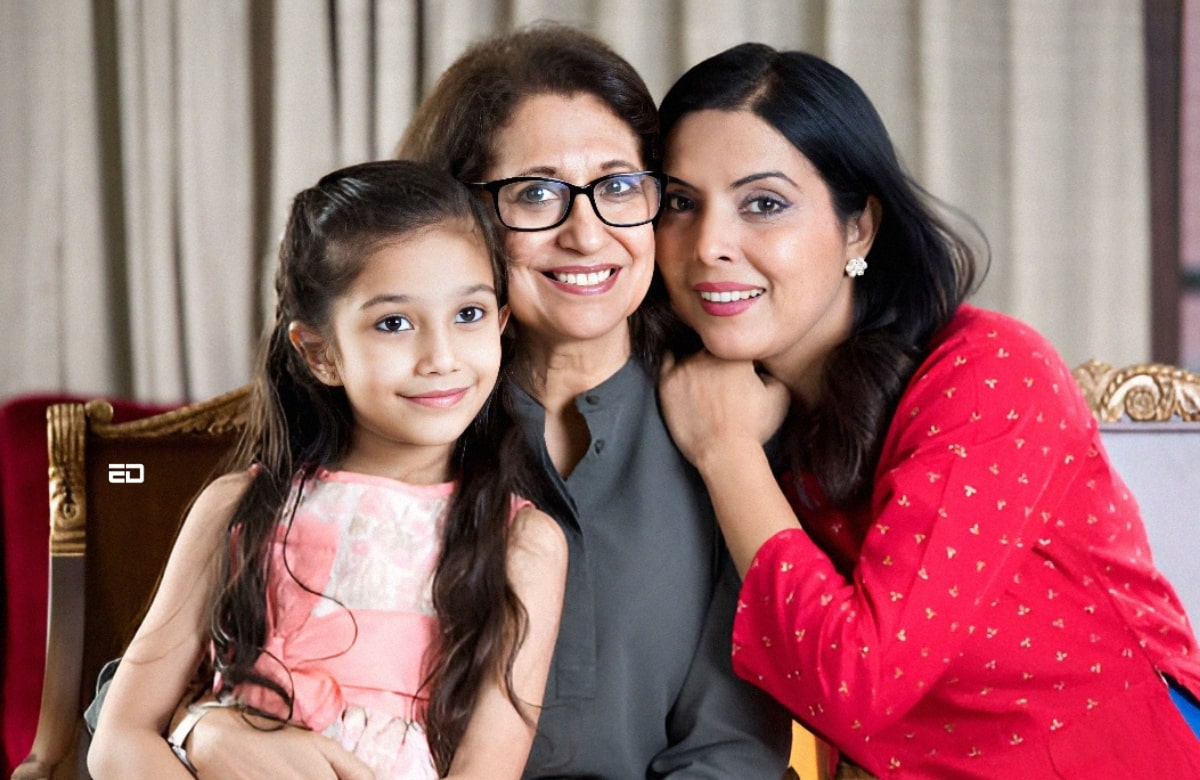In the intricate tapestry of family dynamics, birth order plays a pivotal role, often shaping the personalities and responsibilities of each sibling.
In Indian households, being born as the first child, particularly if you’re a girl, carries its own set of expectations and challenges. This phenomenon, commonly referred to as Elder Daughter Syndrome (EDS) or parentification, sheds light on the psychological and behavioural patterns that firstborn daughters often exhibit.
What is Elder Daughter Syndrome?
EDS stems from a combination of factors, including familial dynamics and the need for early caregiving responsibilities. These responsibilities may include financial management, caretaking of younger siblings or parents, and assuming a role beyond one’s age.
Relationship counsellor Ruchi Ruuh describes it as a psychological phenomenon where the eldest daughter assumes a certain level of responsibility within the family. Dr Chandni Tugnait, a psychotherapist, adds that factors such as parental disability, illness, substance misuse, or emotional unavailability can contribute to the development of EDS.
New Research Insights
Recent research from the University of California, Los Angeles (UCLA) has shed new light on this phenomenon, indicating that firstborn daughters tend to mature earlier due to their caretaker roles.
The study found that early brain development was observed predominantly in firstborn daughters, with minimal effect on firstborn boys. Jennifer Hahn-Holbrook, one of the co-authors of the study, suggests that male children may help less often with direct childcare, leading to differences in social and pubertal development.
Signs and Symptoms
Identifying whether one falls into the category of EDS involves recognizing certain signs and symptoms. These may include assuming excessive responsibilities, blurred boundaries between parent and child, and a lack of typical childhood experiences. Dr. Tugnait outlines symptoms such as parentified behaviour, feelings of guilt and resentment, and difficulty creating boundaries.
Read More: Juhi Parmar Walks Out Of Barbie Movie With Daughter in 15 Mins; Here’s Why
Effects on Relationships
The impact of EDS extends beyond familial dynamics and can influence other relationships, both positively and negatively. While the sense of responsibility and resilience associated with EDS can foster leadership qualities and determination for success, it may also lead to challenges in interpersonal relationships.
Difficulty expressing vulnerability, establishing boundaries, and prioritizing self-care can contribute to emotional stress for the individual and the family.
Overcoming Elder Daughter Syndrome
Overcoming EDS requires self-awareness, establishing healthy boundaries, seeking support when needed, and practising self-compassion. Relationship counsellor Ruchi Ruuh suggests increasing self-awareness about one’s upbringing and its influence on behaviour and relationships.
Learning to establish and maintain healthy boundaries is essential, as is seeking support from trusted friends, family, or therapy. Practising self-compassion and allowing oneself to be imperfect can alleviate the pressure to constantly strive for perfection.
Being an elder daughter is not a punishment but a unique journey that comes with its own set of challenges and opportunities for growth. By recognizing and addressing the signs of EDS, individuals can foster healthier family dynamics and relationships while navigating their own path towards fulfilment and self-acceptance.
Asking for help, setting boundaries, and embracing vulnerability are essential steps towards overcoming the challenges associated with EDS. After all, being the eldest daughter doesn’t mean you have to be a superhero all the time.
Image Credits: Google Images
Sources: The New York Times, HuffPost, India Today
Find the blogger: Pragya Damani
This post is tagged under: Elder Daughter Syndrome, Parentification, Family Dynamics, Birth Order, Psychological Phenomenon, Caretaking Responsibilities, Gender Differences, Emotional Stress, Relationship Challenges, Self-awareness, Healthy Boundaries, Support Systems, Self-compassion, Growth, Vulnerability, Indian Culture
Disclaimer: We do not hold any right, or copyright over any of the images used, these have been taken from Google. In case of credits or removal, the owner may kindly mail us.
Other Recommendations:
Chinese Woman Quits Job To Become A Full Time Daughter, Gets Paid


































